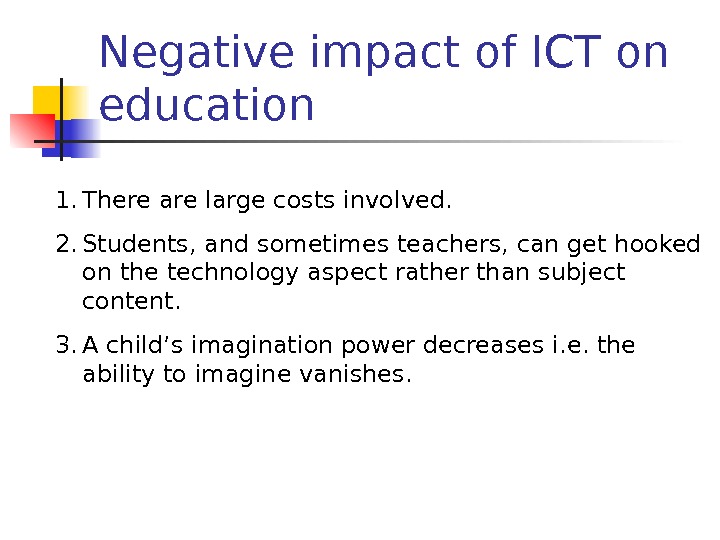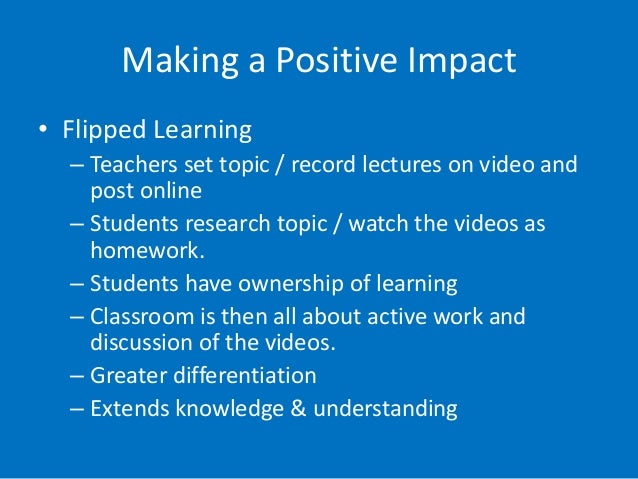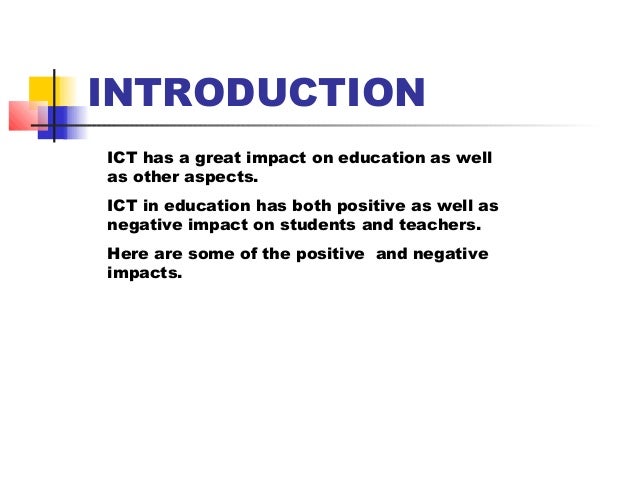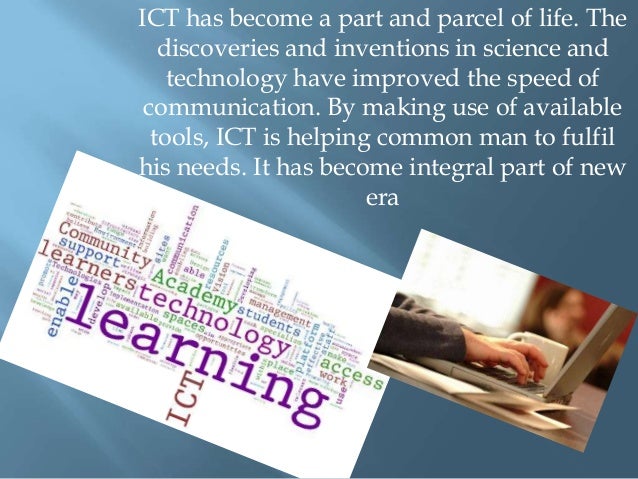
Monday, 17 October 2016
Positive And Negative Impacts That Ict On Education Education Essay
Published:
ICT stands for Information Communication Technology. ICT is widespread and essential to play a meaningful role in changing and modernizing educational systems as well as the way of learning. It is part of many aspects of our daily lives.
ICT refers to the technology that access to information. It includes any product that will store, restore, operate, or receive information in a digital form. ICT is similar to IT that ICT focus more on communication which includes internet, wireless network and other communication mediums. There are some examples of ICT tools, such as computing industry, telecommunications, and electronic display.
ANKITAS BLOG

It is generally believed that ICTs can empower teachers and learners, promote change and foster the development of ‘21st century skills, but data to support these beliefs are still limitedThere is widespread belief that ICTs can and will empower teachers and learners, transforming teaching and learning processes from being highly teacher-dominated to student-centered, and that this transformation will result in increased learning gains for students, creating and allowing for opportunities for learners to develop their creativity, problem-solving abilities, informational reasoning skills, communication skills, and other higher-order thinking skills. However, there are currently very limited, unequivocally compelling data to support this belief.
Sunday, 16 October 2016
General
- It is generally believed that ICTs can empower teachers and learners, promote change and foster the development of ‘21st century skills, but data to support these beliefs are still limitedThere is widespread belief that ICTs can and will empower teachers and learners, transforming teaching and learning processes from being highly teacher-dominated to student-centered, and that this transformation will result in increased learning gains for students, creating and allowing for opportunities for learners to develop their creativity, problem-solving abilities, informational reasoning skills, communication skills, and other higher-order thinking skills. However, there are currently very limited, unequivocally compelling data to support this belief.
- ICTs are very rarely seen as central to the overall learning processEven in the most advanced schools in OECD countries, ICTs are generally not considered central to the teaching and learning process. Many ICT in education initiatives in LDCs seek (at least in their rhetoric) to place ICTs as central to teaching and learning.
- An enduring problem: putting technology before educationOne of the enduring difficulties of technology use in education is that educational planners and technology advocates think of the technology first and then investigate the educational applications of this technology only later.
Subscribe to:
Comments (Atom)



